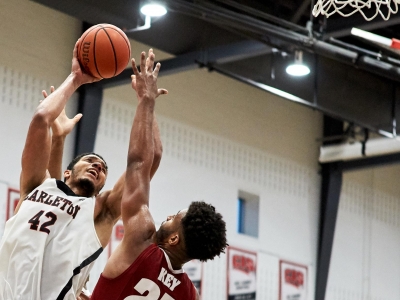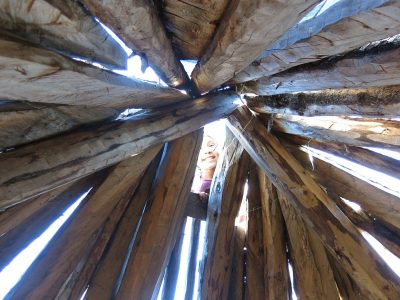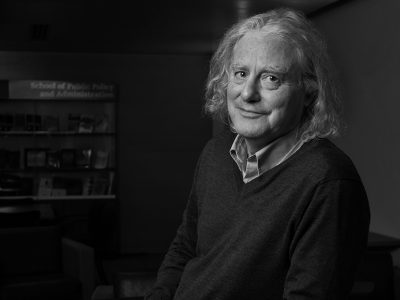By Dan Rubinstein
Five years ago, Avery Sheppard’s life changed dramatically during a dinner table conversation at home in the town of Mindemoya on Northern Ontario’s Manitoulin Island.
Her mother had been encouraged by a local businessman to open a restaurant in an iconic lighthouse-shaped building overlooking the water in nearby Gore Bay. Denise Purvis Sheppard told her husband and kids that she wasn’t interested.
“So I asked my mom if I could do it,” recalls Avery, who was just 18 at the time.
“She thought I was joking, but I wouldn’t let it go.”
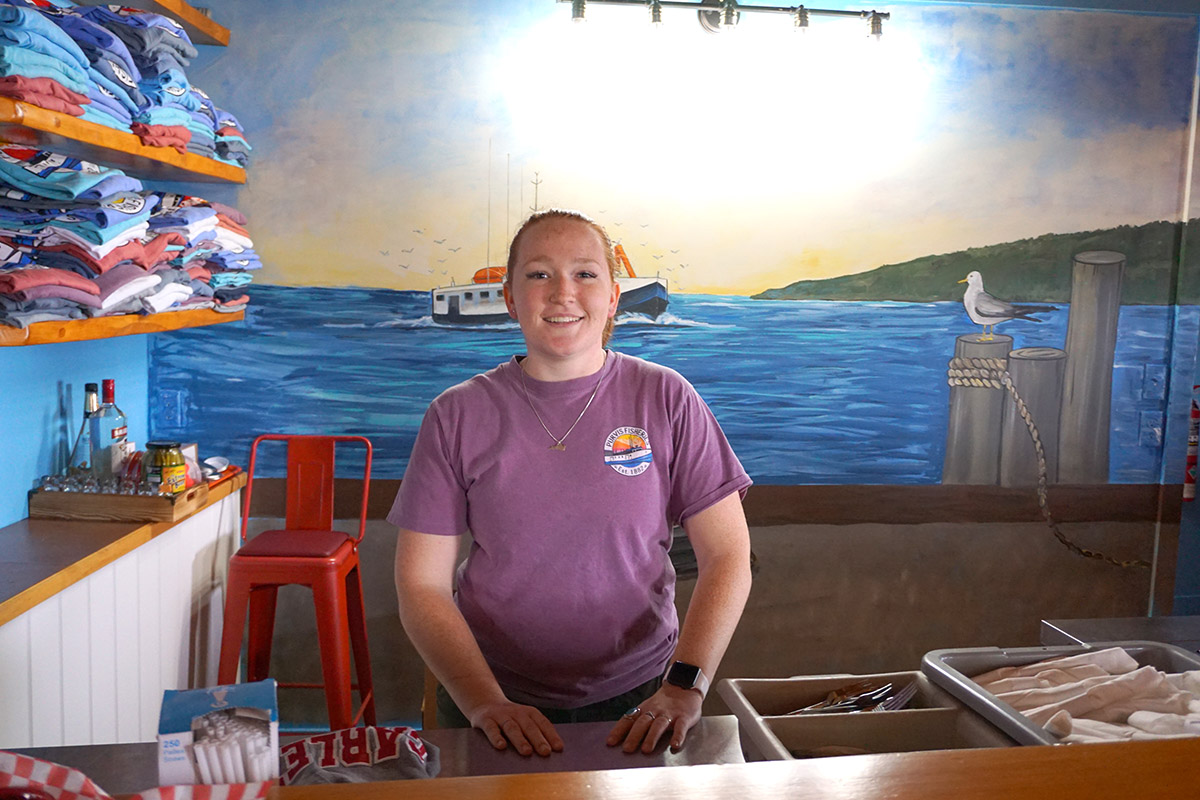
Avery Sheppard
“If you can figure it out,” her mom said, “go ahead.”
And if you think it’s foolhardy for a teenager to jump into a notoriously challenging industry with virtually no experience, you don’t know Avery Sheppard.
She grew up helping out in her family’s nearly 150-year-old fishing business, unloading the catch at the docks, working on the line inside the processing plant and running the sales truck at farmers’ markets (before she could even drive the truck). In high school, she also began working for her father’s construction company, learning how to build houses from the ground up.
With that resume, the prospect of renovating a building that had sat empty for a couple years into a restaurant to feed tourists who flock to the island every summer wasn’t overly daunting.
Open from the beginning of June through August, Purvis Fish & Chips was basically a summer job for Sheppard during her time as a commerce student at Carleton University’s Sprott School of Business — a stressful, extremely fast-paced 12-hours-a-day-for-weeks-on-end job.
But sales increased every season, 2025’s total was double that of 2021 and now 23, Sheppard is in the Master of Management in Hospitality program at Cornell University in New York, expanding her entrepreneurial horizons and mapping out her next venture.
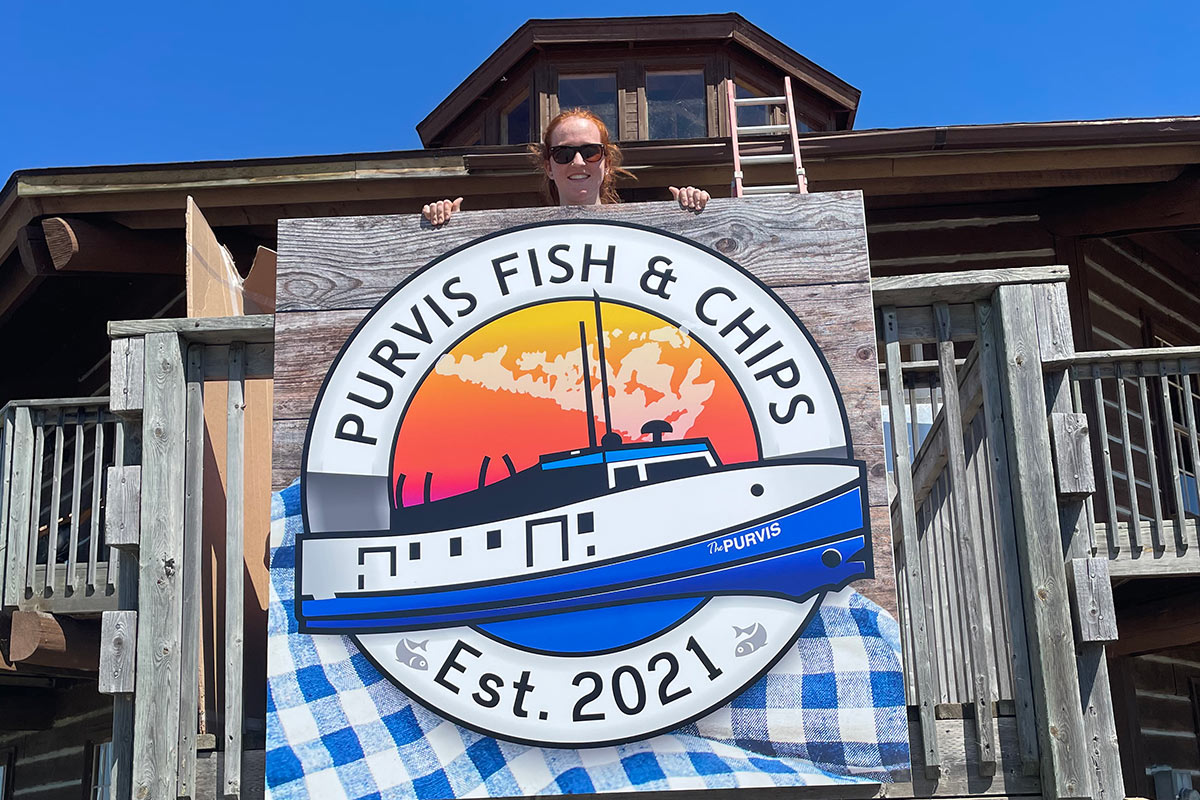
Hands-On Learning
Sheppard’s connections to fishing on Manitoulin Island goes back to 1882, when Scottish-born lighthouse keeper William Purvis started to fish commercially. Within five years, Purvis and his sons were packing the catch in ice and shipping it to Detroit for sale.
Avery’s maternal grandfather still owns the company, but her mother and uncle run it.
“As a kid, it was natural for me to get involved,” says Sheppard. “What else are you going to do in a small town?”

A dish served at Purvis Fish & Chips
Getting a hands-on education in construction from her father also felt right. She started doing clean-up at job sites and progressed to operating machines like skid-steers to position steel beams and trusses, doing concrete work, hanging doors and installing flooring.
That experience paid off when Sheppard jumped into transforming a neglected space into her restaurant. With help from her dad, she ripped out old and installed new flooring, built a bar and front counter, gutted and re-did the kitchen and attached black-and-white photos from her family’s decades of fishing on the walls while teaching herself how to cook and manage the business side of things.
There were hiccups when Purvis Fish & Chips opened, including no lemon on the plates, and retaining staff has been difficult. But by all accounts, the eatery has been a hit, serving up to 300 customers on its busiest days.
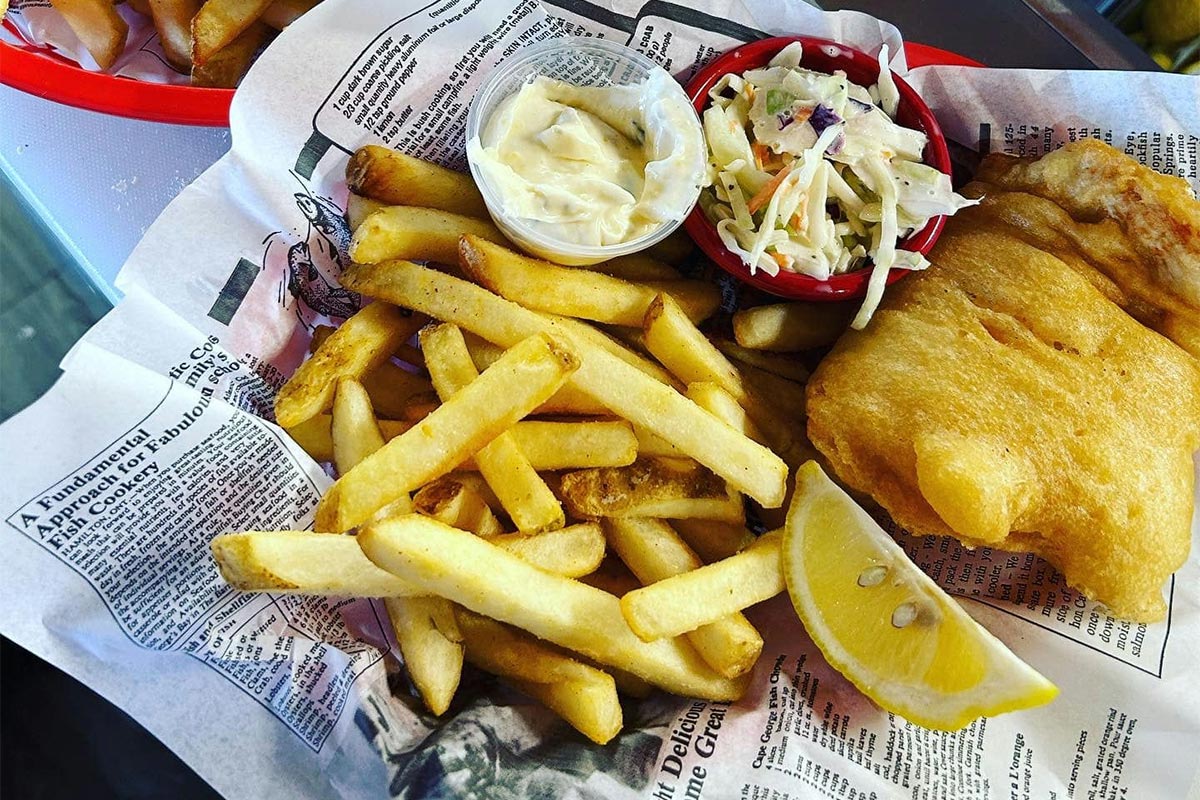
Fish and chips
Some of this success can be attributed to the fact that Sheppard begins every morning at the family’s fish plant, cutting the previous day’s haul of whitefish, pickerel and lake char into pieces for the fryer and grill.
“We probably serve the freshest fish you’ll get at anywhere in Ontario,” she says, “unless you catch it yourself.”
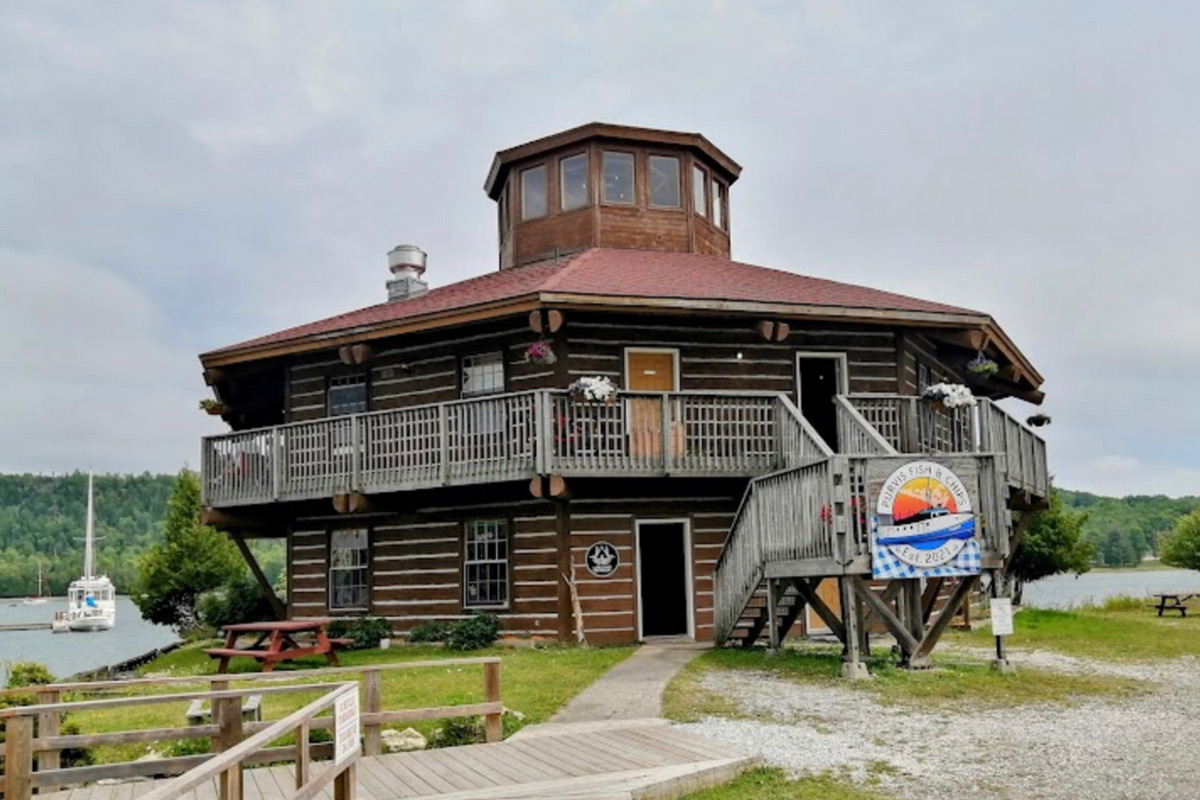
Work Ethic, Maturity and Humility
At Carleton, Sheppard felt at home on the university’s self-contained campus, with a small-town atmosphere that wasn’t jarring for somebody from Manitoulin Island and intramural sports that allowed her to continue her love for hockey.
In class, she learned about the financial world — abouts stocks and bonds and investing — and picked up practical knowledge about accounting and taxes.
Sheppard also participated in programs organized by Carleton’s Innovation Hub, but considering that she was already an established entrepreneur, she mostly used her experience to support other students.
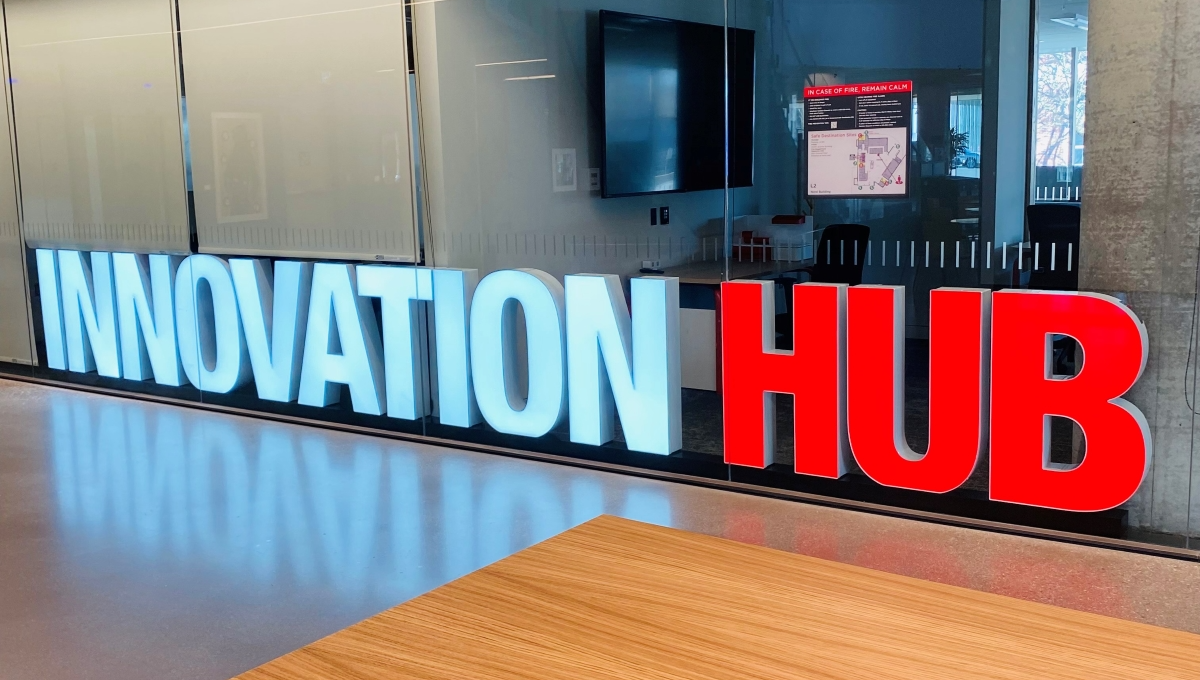
The Innovation Hub at Carleton University
“Avery distinguished herself through her work ethic,” says Toye Akinwumi, one of her instructors at Sprott. “She brought maturity and humility into the classroom, inviting dialogue and collaboration while demonstrating leadership by example.
“What sets her apart is not only that she has achieved this level of success so early, but that she is pursuing personal growth and learning at an Ivy League institution, which demonstrates both humility and foresight. That she is already thinking about expanding into a chain reflects her long-term vision and readiness to scale from a strong foundation.”
That’s right — expanding her business. Even though Sheppard is just a few weeks into her master’s degree at Cornell, she’s contemplating the possibility of opening more restaurants, perhaps with attached hotels to smooth over the seasonal ebb and flow in tourist regions.
She’s also wondering about the future of her family’s fishing business. Along with two siblings and two cousins, she represents the next generation, and while there are challenges in the industry, there’s opportunity as well as a sense of obligation.
“If I had a chain of restaurants, I could be my own supplier,” Sheppard says.
“But really, I don’t know what’s next, and that’s kind of exciting.”
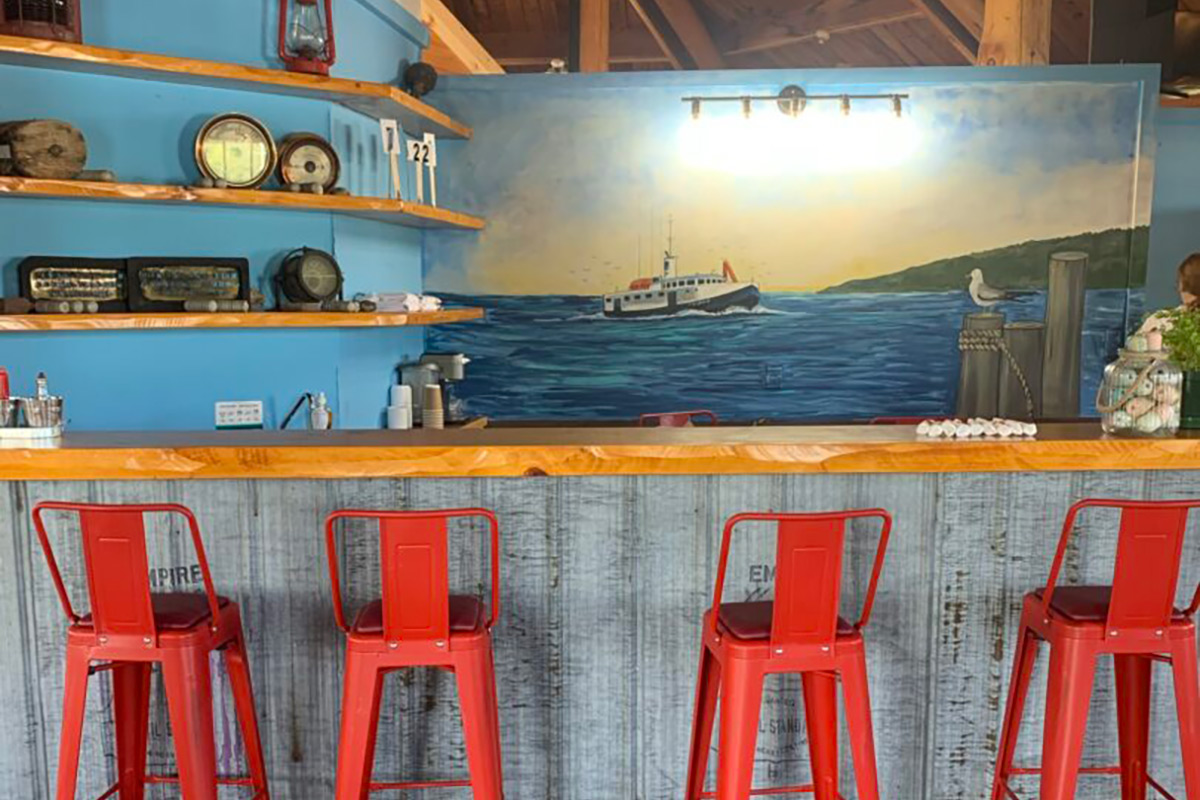
Thursday, October 2, 2025 in Entrepreneurship, Sprott School of Business
Share: Twitter, Facebook
